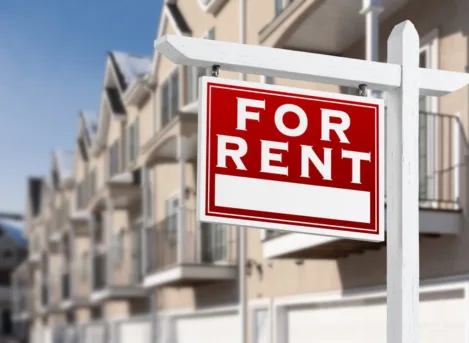On September 29, 2023, the Rhode Island Department of Health (“RIDOH”) announced emergency amendments to the Licensure of Nursing Facility Regulations that will greatly affect the operation and regulatory review of skilled nursing facilities in Rhode Island (the “Emergency Regulations”).[1] The Emergency Regulations are effective as of October 2, 2023 through January 30, 2024.[2] RIDOH submitted the following Brief Statement of Reason for Finding Imminent Peril:
The Rhode Island Department of Health (RIDOH) is filing this emergency amendment to the Licensure of Nursing Facility regulations (216-RICR-40-10-1) to improve nursing home safety and quality and mitigate any imminent threats to the residents of these facilities.
Since August 2020, six Rhode Island nursing homes have closed and three nursing homes with a total of 472 beds are currently in receivership status, with Court-appointed receivers assuming operational responsibilities.
In RIDOH’s examination into facilities that have closed or are currently under receivership, it has become clear that some of these financial difficulties are a result, in part, of premature transfer of operational and financial control.
RIDOH believes that issuing these amendments will clearly hold operators, licensees, and governing bodies wholly accountable for the care provided to residents.
Specifically, this emergency amendment provides for the following:
- Equity – requires applicant and licensee to maintain invested interest in the financial viability of the nursing facility from initial licensure through license renewals;
- Management company – restricts management companies from discharging functions that are reserved to the operator/licensee/governing body and provide RIDOH with the authority to reject management agreements for failure to comply with nursing home regulations;
- Operator (a/k/a licensee) – holds the operator accountable for the day-to-day operation of the nursing facility, including employment and supervision of the nursing facility staff and conducting repairs to the physical plant of the nursing facility;
- Real Property – requires RIDOH’s review and approval prior to the sale of the nursing facility property; and
- Penalties – provides for civil monetary penalties and disciplinary actions if a nursing facility, licensee, operator, or manager fails to comply with the Licensure of Nursing Facility regulations (216-RICR-40-10-1) and the enabling statute.
This emergency amendment will take effect upon filing with the Rhode Island Secretary of State.
The Emergency Regulations revise the definitions of several key terms, including[3]:
- “Change in operator” means a transfer by the Licensee or the governing body of a licensed nursing facility to any other person (excluding delegations of authority to the medical or administrative staff of the facility) of the Licensee/governing body’s responsibility to:
- Hire or fire the chief executive officer of the nursing facility;
- Maintain and control the books and records of the nursing facility;
- Dispose of assets and incur liabilities on behalf of the nursing facility; or
- Adopt and enforce policies regarding operation of the nursing facility.
- Comply with State and Federal safety regulations including, specifically, those set forth under § 1.2 of this Part.
- “Change in owner” of licensed facility applies to both owners and operators.
- “Controlling person” means any person in control of a nursing facility directly or indirectly, including all of the following:
- In the case of a nursing facility which is a limited liability company, or limited liability partnership, a person having a beneficial ownership of five percent (5%) or more in the corporation, limited liability company or limited liability partnership to which the nursing facility is licensed;
- In the case of a nursing facility which is a general partnership or limited partnership, any general partner;
- In the case of a nursing facility which is a limited liability company, or limited liability partnership any member;
- In the case of a nursing facility which is a limited liability company, or limited liability partnership any member; a person that operates or contracts with another person for the operation of a nursing facility.
- Equity means non-debt funds contributed towards the capital costs related to the initial establishment and licensure of a nursing facility or a change in owner or change in operator of a nursing facility which funds are free and clear of any repayment or liens against the assets of the proposed owner and/or licensee and that result in a like reduction in the portion of the capital cost that is required to be financed and mortgaged. The initial contribution of equity must remain free and clear of any repayment or liens against the assets of the licensee throughout the period of licensure, including all subsequent renewals.
- “Nursing facility” means a licensed health care facility, building, or portion thereof or an identifiable unit or district part thereof, however named, that provides twenty-four (24) hour inpatient and residential nursing….
The Emergency Regulations also define the following terms for the first time:
- “Lessee” means the person that leases the real property of a nursing facility from its owner. The term “lessee” includes any sublessees of the lessee.
- “Licensee” means the holder of a nursing facility license issued by RIDOH.
- “Management company” means a company that provides limited, defined administrative services for a nursing facility owner, operator or lessee. A management company may not discharge functions that are reserved to the operator/licensee/governing body. The nursing facility owner, operator or lessee that engages a management company remains responsible for the services provided by the management company.
- “Operator” shall have the same meaning as contained in RI. Gen. Law § 23-17-65. [4] Operator responsibilities, such as day-to-day operation of the nursing facility, including employment and supervision of the nursing facility staff, adoption and enforcement of nursing facility policies, disposition of assets and incurring of liabilities on behalf of the nursing facility, controlling the books and records of the nursing facility, conducting repairs, replacements or improvements to the physical plant of the nursing facility, and accounting for the personal needs of the residents of the nursing facility, are nondelegable.
- “Owner” of a nursing facility means the person that owns the real property of the nursing facility. An owner remains responsible for compliance with §1.19 of this part.
The Emergency Regulations also broaden the requirements for change in effective control (“CEC”) review. Specifically, real property that is being operated as a nursing facility may not be acquired or purchased by a person prior to review and approval by RIDOH.[5]
The criteria by which the Rhode Island Health Services Council (“HSC”) and RIDOH review a CEC application is also altered by the Emergency Regulations. When evaluating the character, commitment, competence, and standing in the community of the proposed owners, operators or directors, the HSC and RIDOH will now consider the applicant’s proposed and demonstrated financial commitment, including maintenance, throughout the period of licensure, including all subsequent renewals, of the minimum equity position approved by the licensing agency at the time of initial licensure or change in effective control.[6] Moreover, when evaluating the extent to which the nursing facility will continue to provide safe and adequate treatment, the HSC and RIDOH will evaluate whether the applicant will maintain the amount and source of owner’s equity throughout the period of licensure.[7]
With respect to management companies, the Emergency Regulations empower RIDOH to reject management agreements for failure to comply with nursing home regulations.[8] Further, any nursing facility that fails to submit copy of a revised management contract to RIDOH within 30 days of the effective date of the new provisions shall be subject to suspension or revocation of its license, curtailment of its activities and/or may be subject to civil monetary penalties.[9]
APS is continuing to review and analyze the Emergency Regulations and will keep clients abreast as the situation develops. Please contact us with any questions or comments.
[1] A copy of the emergency amendments can be found here: https://rules.sos.ri.gov/regulations/part/216-40-10-1
[2] An emergency regulation, which does not require a public comment period prior to implementation may be effective for a minimum of 120 days, renewable once for a maximum of 60 days. See R.I.G.L. §42-35-2.10
[3] Changes to the previously defined terms contained in the regulations are marked in bold.
[4] “[O]perator” means the licensee and also includes the complete ownership entity above the actual entity holding the license. See R.I.G.L §23-17-65.
[5] See 216-RICR-40-10-1.6(D).
[6] See 216-RICR-40-10-1.7(F)(1)(c).
[7] See 216-RICR-40-10-1.7(F)(2)(a)(1).
[8] See 216-RICR-40-10-1.7.2(A)(1).
[9] See 216-RICR-40-10-1.7.2(A)(3) – (4)







